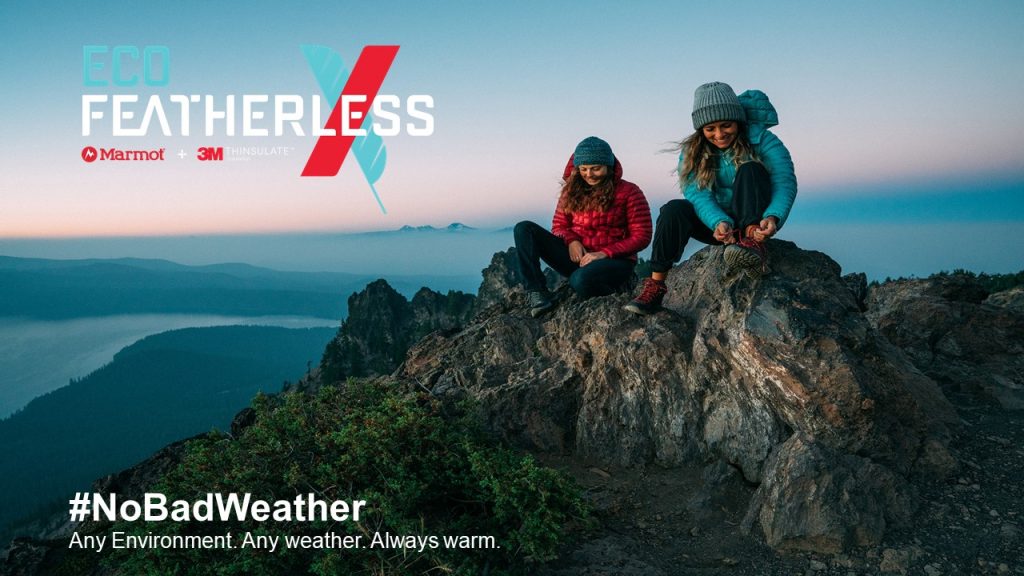For years the gold standard in apparel and gear insulation has been the down of ducks and geese. As far as the lightness, warmth and compression offered by down, for many years there has simply been no alternative.
Back in 2014, global manufacturing brand, 3M announced the launch of its Thinsulate Featherless Insulation.
A leader in synthetic insulation manufacture since the 1970s, 3M had designed a new way to fill jackets and sleeping bags that would provide all the warmth and comfort of down without requiring a single bird to be involved.
Since then, Thinsulate Featherless Insulation has begun appearing in the outdoor market, with Marmot bringing its line of Featherless jackets to Australia in 2017.
Sylvie d’Azemar, a brand manager at Marmot, said the new insulation demonstrated both the environmental and performance-related features Marmot had hoped for.
“People love down because of its warmth, its light weight and pillowy nature, and the feel of the product in their hands,” d’Azemar said. “We are now able to mimic all of this with Featherless technology.
Marmot says their products have been tested to show that Featherless insulation is as warm as 700-fill down, but better yet it retains more warmth than feathers do once wet – a key requirement for any serious outdoor product.
Thinsulate Featherless Insulation achieves this warm-when-wet feature as it has been specifically designed to absorb less than one percent of the water it’s exposed to.
Better yet, improvements in the sustainability of 3M’s own production methods mean that this product is now made of 75 percent recycled material.
Other accreditations of Thinsulate Featherless Insulation means it also carries the the bluesign® approved label, as well as the OEKO-TEX® Standard 100.
Find out more about Marmot’s Featherless Insulation range at



